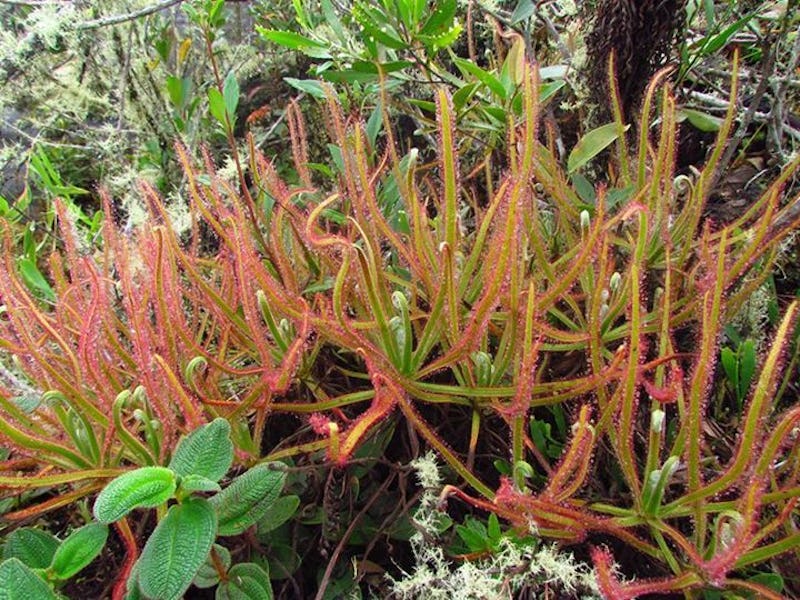New Plant Discovered Via Facebook Photo Validates All of Weird Social Media
It's 5-feet-tall, eats bugs, and owes Mark Zuckerberg for its scientific debut.

Facebook! It might be hemorrhaging cool teens and distilling your personal data into crystals that bloated corporate exogorths can crush and smoke, but at least it’s still a place where you can see photos of that weird thing your uncle found on his hike. In this application of the “Book is much more useful than you might have realized”: the weird thing is a 5-foot-tall bug-eating plant from the top of a Brazilian mountain. And there’s always the chance that it was previously unknown to science, which is just how the sundew Drosera magnifica made it into the botanical record last Friday.
It’s the first-ever plant to have been discovered via Facebook, announced researchers from the Botanical State Collection in Munich and the University of Sao Paolo. In 2013, an amateur botanist and photographer snapped an image of the magnificent sundew and let it loose on Facebook. When nobody could give it a positive ID, experts realized they had a new species on their hands. Here’s how the scientists break it down the second-largest carnivorous plant in the Americas, via the journal Phytotaxa:
Drosera magnifica, a microendemic sundew discovered on a single mountain top in eastern Minas Gerais (southeastern Brazil), is described here as a new species for science. Regarded as the largest New World sundew and one of the three largest Drosera species, it was just recently discovered through photographs posted on the social network Facebook.
Because it’s only been found on the top of a single mountain, however, it’s already qualified for as critically endangered with the International Union for Conservation of Nature.
It’s not the first time — nor will it be the last — that social media played a role in scientific discoveries. Wildlife biologists on Twitter have found new and unusual animal behaviors documented by photographers, amateurs and passersby, such as the first roadrunner to have been spotted munching on a cottonmouth.